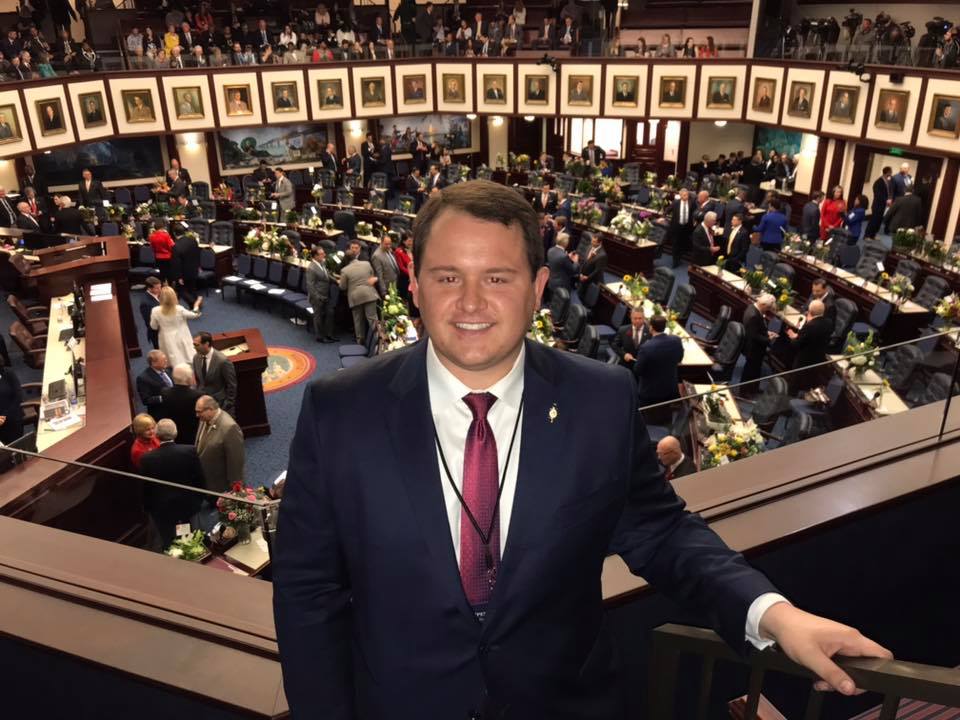A bill seeking to update and refine regulations related to pre-K-12 education in Florida is on its way to the Senate floor.
The Senate Fiscal Policy Committee passed the measure (SB 1618) by a vote of 18-1.
Republican Sen. Alexis Calatayud presented the bill by spotlighting several provisions, including language prohibiting the use of state and federal funds for social or political activism, requiring parental consent for corporal punishment in public schools, and focusing programs toward underrepresented or economically disadvantaged students.
Tuesday’s hearing began with a delete-all amendment, adding in language from a separate measure. “The delete all amendment also incorporates all of the provisions of Senate Bill 1624, which we heard in this committee last week,” Calatayud said.
Miami Gardens Democratic Sen. Shevrin Jones sparked some debate over the bill, asking Calatayud to clarify the section of the bill that prohibits funds being used for political or social activism.
“I’m looking at lines 261 and to 267 in the bill, it says that you would prohibit charter schools, public schools and school districts from using state or federal funds on programs or activities that can advocate, promote or engage in political or social activism,” Jones said.
“My first question is if you can provide, possibly, an example of such programs or activities that would be defunded so we can understand what constitutes political or social activism.”
In response, Calatayud said the measure follows previous legislation that prohibited the use of state or federal funds for political or social activism on college and university campuses.
“So, in Senate Bill 266, one or two years ago, the Legislature made the decision that we would not allow state or public funding within the higher education system in Florida, in which to engage in social and political activism,” Calatayud said.
Calatayud said she didn’t have specific examples to share but added she would be happy to follow up.
“This is a value statement that within our public education system, state and federal funding will not be an allowable use for political activism, social activism,” Calatayud said. “What I think is important is we’re not talking about a specific side of the aisles of political and social activism. Our schools in Florida, our publicly funded schools, should not be a battleground for political ideology.”
Calatayud noted that political or social activism can still happen, but government funds could not pay for it.
“With state and federal funding, we should be very thoughtful of not having either conservative or progressive causes, political affiliations, that are funded by the state or the federal government’s money,” Calatayud said.
Jones asked if the bill would prohibit school clubs from getting funding.
“Would this prohibit support from, let’s say a school that has an environmental activism club that wants funding to run a beach cleanup? Under this, is it allowable?” Jones asked.
Calatayud reiterated it would not apply to activities outside of the classroom that align with school curricula.
“In my district we have a coastal academy in Cutler Bay, and they do beach cleanups all the time,” Calatayud said. “They do environmental policy discussions. I think what is important is the division between what is curriculum. … Our intent is specifically for social and political activism, not the extracurricular or out-of-the-classroom experiential learning opportunities that we are in every other sense, empowering.”
Jones asked if a school would be banned from providing funds to a political group like Turning Point USA for a high school chapter.
Calatayud reiterated that it would only apply to state and federal funding.
“As the bill’s written, state or federal funds that are associated with that school district could not be utilized for a political or social activism group,” Calatayud said. “That would squarely fall under that definition. So, state and federal funds would not be usable, other funds that are not, that are associated with the school district could potentially be used.”
Jon Harris Mauer, public policy director at Equality Florida opposed this section of the bill.
“This is a provision that prevents public schools, charter schools, and school districts from spending any state or federal funds on programs or activities that advocate or engage in social activism, ” Mauer said. “It’s not clear what current problem this is solving; the funding is similar to a provision already in place for the Florida College system that has contributed to universities shutting down critical activities and programs that help a diverse range of students learn and thrive.”
The measure would also repeal the Council for Early Grade Success in the Florida School for Competitive Academics, expand agriculture education to include history and societal economic impact of agriculture, and focus state academic standard documents on standards and benchmarks.
The Miami Republican noted that public schools, charter schools and related organizations would further be prohibited from spending funds on any entity that discriminates.
The cost of post-secondary education and funding sources would be required to be a component of a required financial literacy course, while also requiring that intensive reading interventions be delivered by instructional personnel who possess a micro credential or certified endorsement in reading.
Calatayud said school districts would be required to provide a description about how they prioritize highly effective teachers up to second grade, and schools would be able to purchase and administer emergency opioid treatment Naloxone.
Other provisions would expand access to the GATE Program by authorizing partnerships with online providers, remove age limits for participation and expand the use of funds for marketing and outreach in rural areas of opportunities.
Smaller Florida College System institutions that primarily serve rural communities would be authorized to establish state college regional consortium service organizations.
Calatayud said the measure would implement additional guardrails for the operations of private religious post-secondary institutions who are not licensed by the commission for independent education, and school districts would be authorized to use a discretionary millage levy to pay for liability and casualty insurance.
Background rescreening deadlines for public and private school employees, would be moved out by six months. This would change the compliance date from June 30 to Dec. 1 and would happen over the next three years.
In closing, Calatayud said her intent is to make Florida’s education system stronger and added that children should have education that drives them to advance when they’re adults.
“My intent is … one to ensure that it provides a stronger education system there’s so many elements now that this legislation is now a K through 20 package,” Calatayud said. The other responsibility that I think we all have, is to make sure that our children have a learning environment that is focused on what’s going to advance them as members of our community and as professionals.”
Post Views: 0

 Entertainment8 years ago
Entertainment8 years ago
 Politics8 years ago
Politics8 years ago
 Entertainment8 years ago
Entertainment8 years ago
 Entertainment8 years ago
Entertainment8 years ago
 Tech8 years ago
Tech8 years ago
 Tech8 years ago
Tech8 years ago
 Tech8 years ago
Tech8 years ago
 Politics8 years ago
Politics8 years ago










